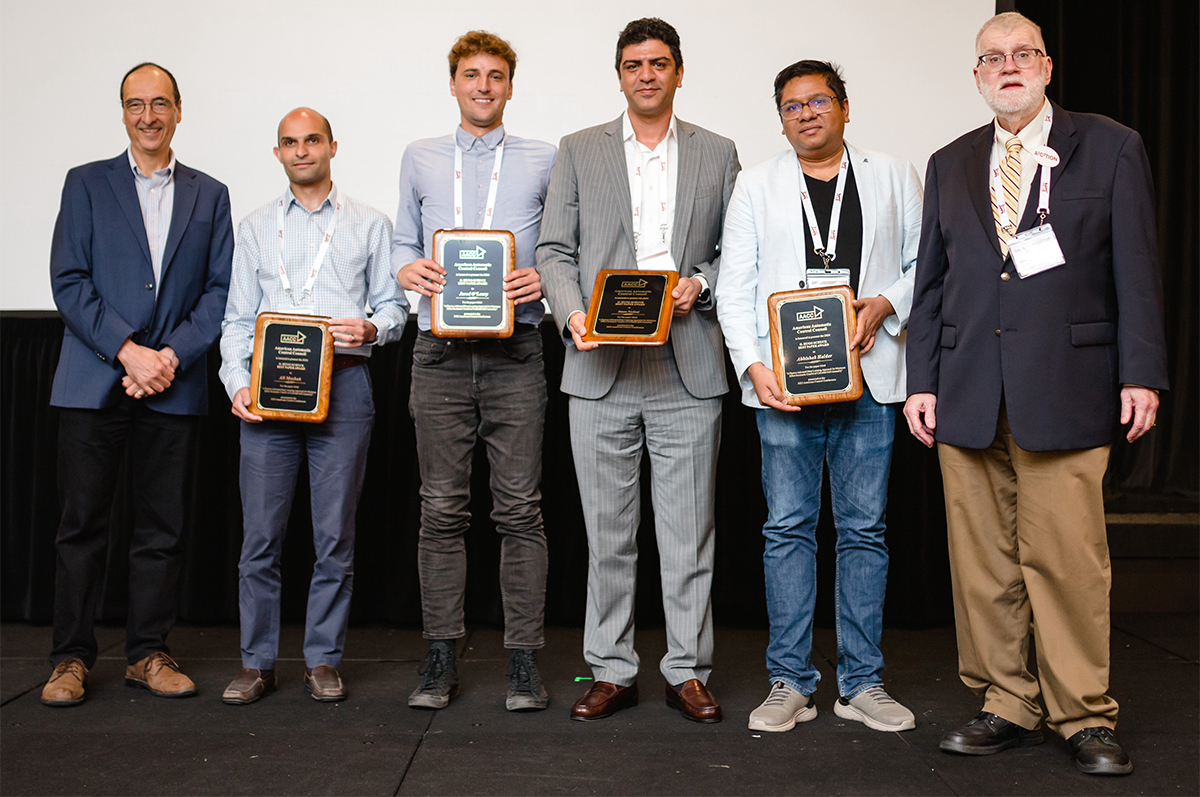Halder part of research group honored with best paper award
Author: John Burnett-Larkins
Author: John Burnett-Larkins

Abhishek Halder, an associate professor in the Iowa State’s Department of Aerospace Engineering, is part of a research group that has received the prestigious O. Hugo Schuck Best Application Paper Award from the American Automatic Control Council.
Halder and team used novel mathematical techniques to address a new method of creating properties that don’t exist in nature for use in materials engineering. The awarded paper is titled “A physics-informed deep learning approach for minimum effort stochastic control of colloidal self-assembly.”
“One of the goals of materials engineering is to create new materials with certain desired properties that do not exist in nature,” Halder explains. “This could be magnetic properties, electrical properties, mechanical or optical properties that have to be created in a laboratory. In order to do this you have to apply things like heat, electromagnetic energy or other things in a technique that is called ‘forcing.’ What’s important is how to use the least amount of forcing to create these desired materials. This translates directly to how much the process will cost. It’s also key to enable high performance material synthesis in a reliable and reproducible manner.”
In this paper, the researchers explored new methods to force a certain structure of colloids, a general term for particles suspended within a substance. They investigated how to best use an electric field to force the colloids to transition from a random, disordered structure to a defined, ordered structure over a prescribed time period.
Because existing mathematical theory or algorithms cannot be applied for this process, the researchers designed new artificial intelligence (AI) methods to accomplish it – and during the research discovered that their processes had led to creation of an all-new set of mathematical equations which had never been studied. This discovery adds value to research in theoretical mathematics, in addition to applications for materials engineering.
“This work opens up new vistas in the mathematics of what is called stochastic control theory, an area that investigates how to modify a system’s natural behavior in the presence of noise for engineering purposes,” Halder explains.
The code repository for this work is publicly available.
In addition to his Iowa State University Department of Aerospace Engineering position, Halder is a visiting associate professor in the Department of Applied Mathematics at the University of California Santa Cruz. The awarded research is a collaboration between Halder; Iman Nodozi, a University of California Santa Cruz Ph.D. student advised by Halder; and Jared O’Leary and Ali Mesbah of University of California Berkeley.
This research was supported by a collaborative National Science Foundation grant, “Learning and Distributional Feedback Control for Fabrication of Advanced Materials,” led by Halder.
The Schuck award was presented at the American Automatic Control Council Conference in Toronto, Canada.